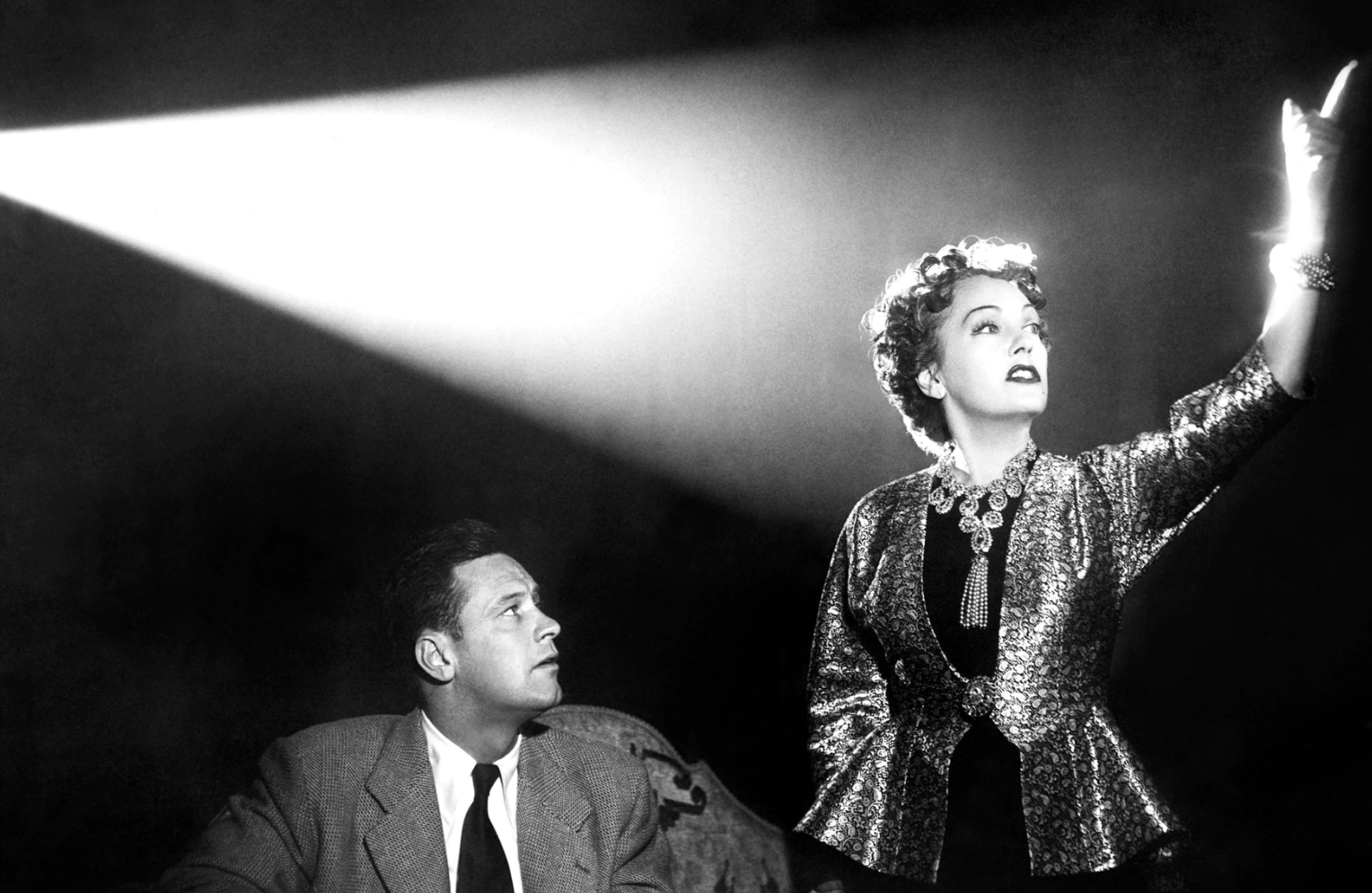‘Sunset Boulevard’: Beware the Corrosive Effects of Cynicism, Delusion and Deceit
'You're Norma Desmond. You used to be in silent pictures. You used to be big.'
'I am big. It's the pictures that got small.’
‘Sunset Boulevard,’ Billy Wilder’s classic 1950 movie, holds a mirror up to Hollywood – its cruelty, greed and narcissism. It raises questions about the human cost of the creative industries’ relentless drive for progress and profit.
The film stars William Holden as Joe Gillis, a struggling screenwriter who has been worn down by one too many disappointments.
'Audiences don't know somebody sits down and writes a picture. They think the actors make it up as they go along.’
Gillis is cynical and bitter, short of money and considering packing it all in.
'I'd always heard you had some talent.'
'That was last year. This year I'm trying to earn a living.’
While endeavouring to evade his creditors, Gillis stumbles into the mansion of Norma Desmond, a former silent-film star, now long forgotten. The house is all faded grandeur: heavy ornate furnishings, a bed ‘like a gilded rowboat’, an unused tennis court and pool, an organ that whistles in the wind. Everywhere there are portraits of the star in her dazzling youth.
'The whole place seemed to have been stricken with a kind of creeping paralysis... out of beat with the rest of the world... crumbling apart in slow motion.’
Desmond is a sad, delusional figure. She refuses to accept that the arrival of cinematic sound represented an advance; and that her career is long since over.
'There once was a time in this business when I had the eyes of the whole world! But that wasn't good enough for them, oh no! They had to have the ears of the whole world too. So they opened their big mouths and out came talk. Talk! Talk!’
Desmond’s stiff, taciturn butler Max maintains that she is still a legend beloved by the public. And he forges her fan mail to sustain the deceit.
'You don't yell at a sleepwalker. He may fall and break his neck.’
Learning that Gillis is a writer, Desmond hires him to edit a script she has drafted for her planned return to the screen. Though Gillis thinks the work is execrable, he is happy to take the money.
'What it needs is maybe a little more dialogue.'
'What for? I can say anything I want with my eyes.’
Gillis moves into the mansion, and, accepting clothes and gifts from the besotted actress, he gradually becomes her paid companion. At night they watch old movies together on her private screen – all of them starring the youthful Norma Desmond.
We realise the melancholy runs deep. Desmond has tried to commit suicide on a number of occasions, and so the locks in the house have been removed. Max is in fact Desmond’s former director and first husband, and he remains pathetically devoted to her.
Ultimately Gillis’ cynicism, Desmond’s denial and Max’s deceit hold the three central characters in a vortex of self-destruction - one from which they cannot escape.
'No one ever leaves a star.'
Director Wilder introduces further resonances through his casting. He gives the role of Desmond to Gloria Swanson who was herself a major silent star in the ‘20s. Max is played by Erich von Stroheim - a famously fastidious director in the silent era, who shot Swanson a number of times. Indeed in 1929 von Stroheim was fired by Swanson from one of her productions, an incident that ended his directing career. And the ‘waxworks’ that visit Desmond’s house to play bridge in the evenings are genuine silent film actors, including the illustrious comedian Buster Keaton.
'We didn't need dialogue. We had faces.'
‘Sunset Boulevard’ is a story of lives blighted by ambition, success and failure; of the relentless drive of progress; of an industry that devours talent, spits it out and moves on. The film has some lessons for anyone working in a creative business.
'There's nothing tragic about being 50, not unless you try to be 25.'
Beware the corrosive effects of cynicism - the misanthropy that deprives Gillis of his intuition and flair. With every new setback the bitterness increases, and the chances of making it next time diminish.
Beware denial of change; yearning for past success and former glory. Where Desmond rages against sound, today’s former heroes resent the advances of performance marketing, data analytics, behavioural science and in-housing.
‘Poor devil - still waving proudly to a parade which had long since passed her by.’
And finally, beware the petty deceptions: the everyday falsehoods that sustain the illusion that everything is fine, when it patently isn’t. Don’t, like Max, confirm the biases and prejudices that are holding back advancement. Don’t bury your head in the sand.
‘Sunset Boulevard’ ends where it began – with tragedy. Desmond descends her grand staircase. She pauses, and then steps towards the cameras, addressing the attendant press and the audience beyond.
'You see, this is my life. It always will be. Nothing else! Just us, and the cameras, and those wonderful people out there in the dark... All right, Mr. DeMille, I'm ready for my close-up.’
'Are we really happy here
With this lonely game we play?
Looking for words to say.
Searching, but not finding understanding anywhere.
We're lost in a masquerade.’
The Carpenters, ‘This Masquerade’ (L Russell)
No. 402


